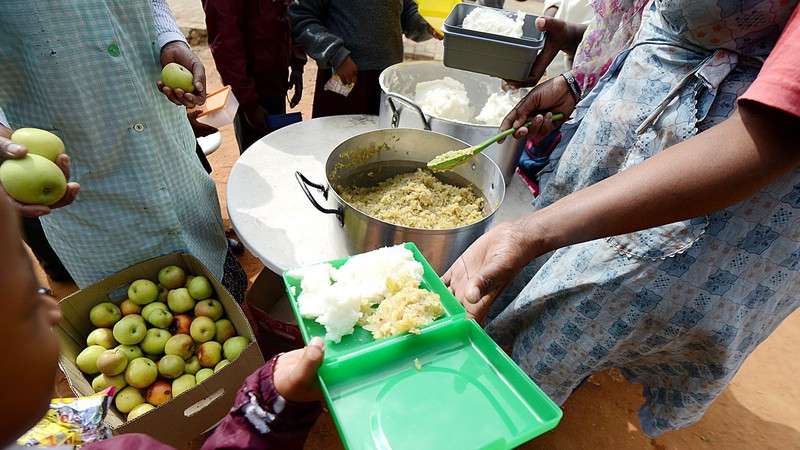
DEPARTMENT DOES U-TURN ON KZN SCHOOL FEEDING FUNDS
The KwaZulu- Natal Department of Education (DoE) has given assurances that all pupils who depend on meals through the National School Nutrition Programme will continue to benefit from the scheme despite it experiencing a shortage of funds.
A few days ago the department stated in a circular that it was facing budget constraints and would be cutting funding for the programme which would affect 5% of pupils who depend on the scheme.
However, the department has since backtracked and withdrawn the circular.
Thousands of pupils across the province would have gone without meals at schools had the plan to cut funding been implemented.
The school nutrition programme in the province feeds close to 2.4 million pupils daily.
“The Mercury” understands the move would have affected close to 125 000 pupils. The department, in explaining the withdrawal of the circular, said that it would now “re-prioritise” its current budget to source funds for the feeding scheme.
Last year, the school feeding programme teetered on the brink of collapse after the department changed the tender model from one which involved using multiple suppliers, to appointing one supplier to feed all pupils.
The supplier struggled to deliver, leaving many pupils without food.
However, the department later said the issues had been resolved and the programme was working.
In a statement this week, the department said it “wishes to assure pupils, parents, National School Nutrition Programme (NSNP) service providers, members of the public and all educational stakeholders that the implementation of the NSNP will continue as normal in all benefiting KZN schools when the second term resumes on 2 April 2024”.
“The department hereby confirms that 2 445 466 pupils in 5 446 schools will continue to receive nutritious meals on all school days. This includes the provision of breakfast meals in primary and special schools that was introduced in April 2023.”
Department spokesperson Muzi Mahlambi said the U-turn followed an intervention by Education MEC Mbali Frazer.
Mahlambi said the funds to ensure the programme operates fully may have to be sourced internally.
He said that while the department was facing financial constraints, the NSNP would not face budget cuts but other programmes would be affected.
One of the school nutrition programme suppliers, who did not want to be named, said they were still waiting for the department to inform them how many pupils would be fed when the pupils returned to school next week.
“We would normally have received letters by now that tell us about the enrolment at schools and how many pupils we will be supplying.
“We have not received those letters,” said the supplier.
DA spokesperson Imran Keeka said the manner in which the issue has been handled was a serious concern.
“While the DA notes the MEC’s withdrawal of the plan to cease feeding almost 125 000 learners, the fact is that the DoE’s dire financial state, poor management of the NSNP and acrimonious relationship between the MEC and her department have now been laid bare.
“That the DoE was prepared to stop feeding such a large number of learners – and not just planning to do so but also issuing a notice that it would do so – is not surprising, given that the DoE’s wheels are falling off as a result of current internal politics,” Keeka said.
The provincial leader of ActionSA, Zwakele Mncwango, said they were worried that the withdrawn circular was an indication that a crisis could unfold with the nutrition programme.
“The memories of last year’s NSNP collapse, leaving millions of learners without food for months, loom large. We fear a recurrence of this crisis, if immediate action is not taken, is inevitable.
“We refuse to allow learners to endure hunger due to failed planning.
“It is our duty to rectify these failures and restore hope for our people,” said Mncwango.
Frazer said the programme should not be used for politicking.
“The National School Nutrition Programme is aimed at ensuring that learners from disadvantaged backgrounds are able to access their constitutional right to education as part of government’s commitment to securing the future of every child in South Africa.”
The Mercury
2024-03-28T09:11:37Z dg43tfdfdgfd